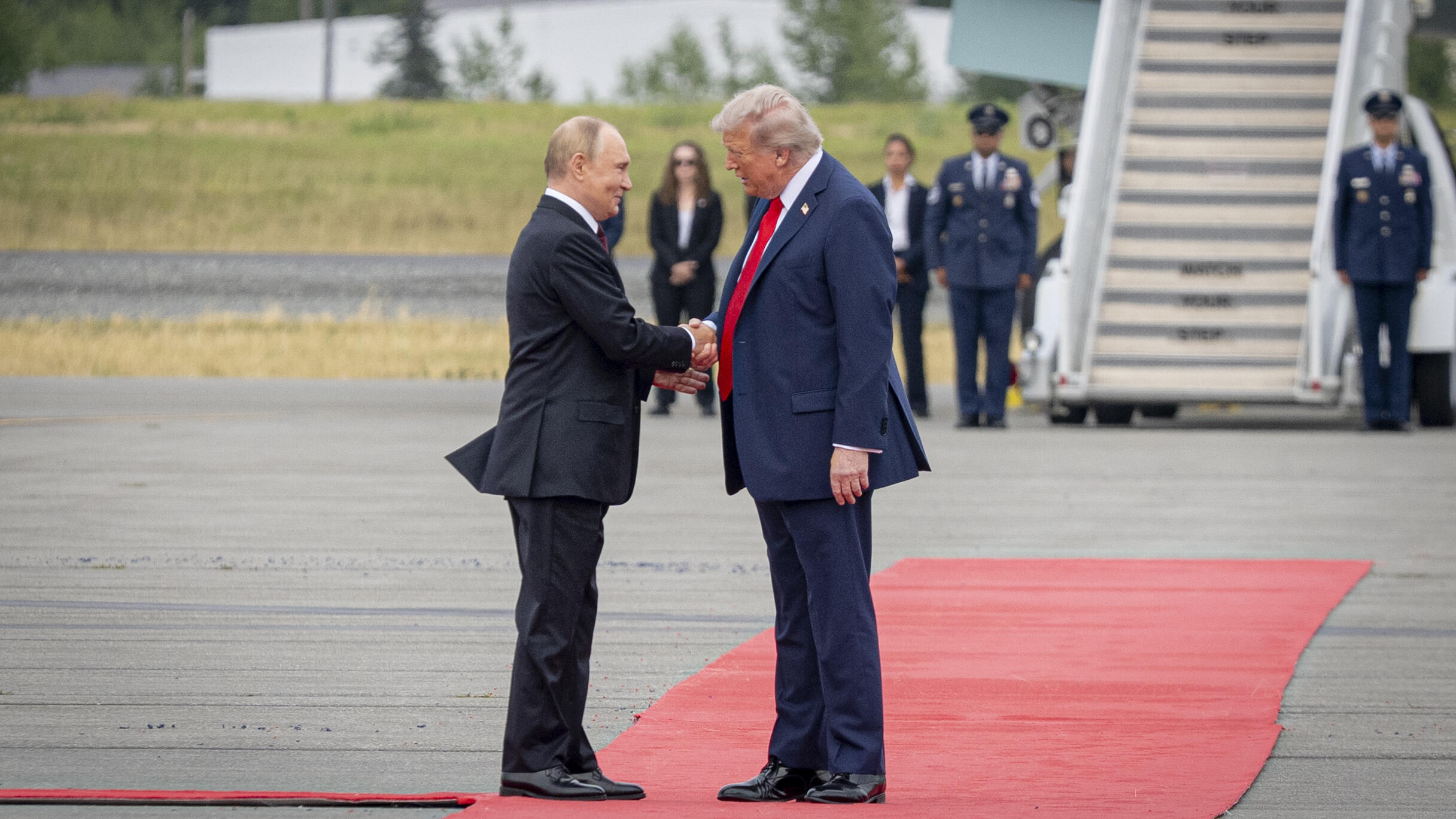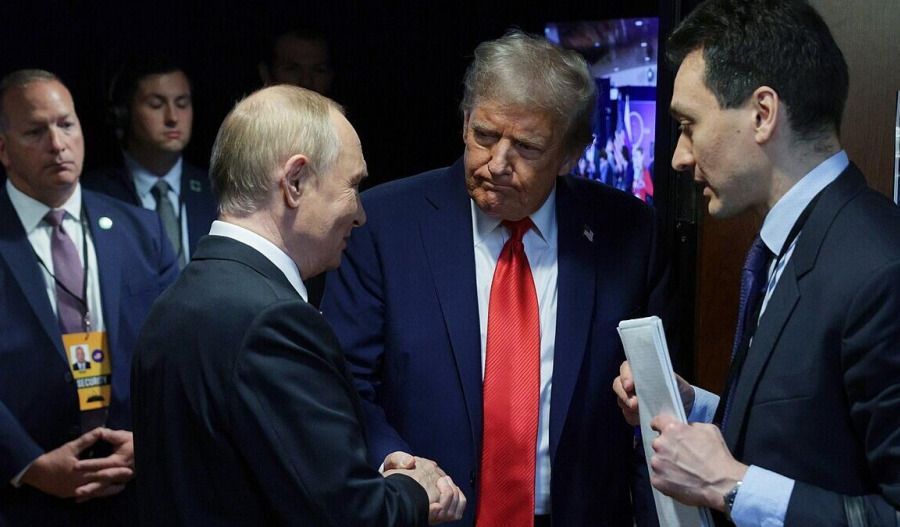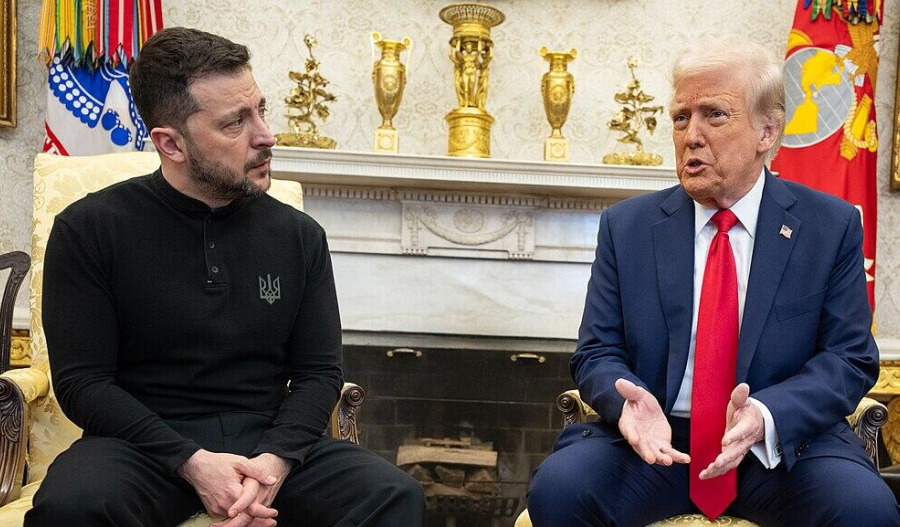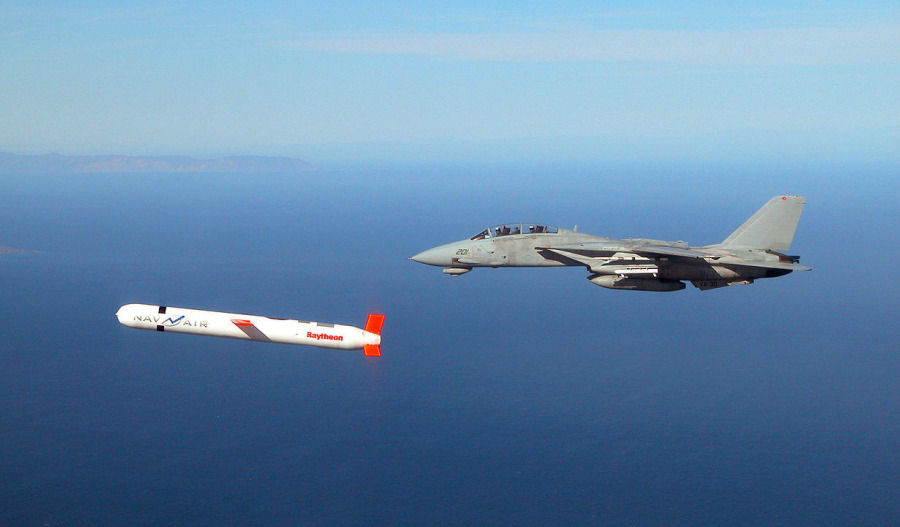A potential summit between United States President Donald Trump and Russian President Vladimir Putin is now on hold in the latest twist in his on-again, off-again efforts to resolve the war in Ukraine.
It’s understood that after Russia's refusal to agree to an immediate ceasefire in Ukraine, the planned Budapest summit between the two leaders has been postponed indefinitely, which casts serious doubt over diplomatic efforts.
Despite what was described as a "constructive call" between U.S. Secretary of State Marco Rubio and Russian Foreign Minister Sergei Lavrov, they are understood to have decided against holding a face-to-face meeting.
While Trump had previously suggested that he would soon meet with the Russian President in Hungary to explore options for ending the Ukraine war, Putin remains unwilling to consider concessions.
Moscow has long demanded that Ukraine agree to cede more territory before any ceasefire.
Within a private communique known as a "non-paper" sent to the U.S. last weekend, Russia reaffirmed its demands for full control of the long-contested eastern Donbas region.
Russia controls all of the province of Luhansk and about 75% of neighbouring Donetsk, which together make up the Donbas region.
Demands by Russia fly in the face of a call by European leaders on Washington to hold firm in demanding an immediate ceasefire in Ukraine, with the present battle lines to serve as the basis for any future talks.
Trump’s last meeting with the Russian leader during an August summit in Alaska failed to advance negotiations.
When questioned about the likelihood of a summit, Trump was reluctant to engage in a “pointless meeting” but flagged the possibility of updates within the next two days.
Despite recent calls with Putin and a meeting with Ukrainian President Volodymyr Zelenskyy, hopes for breakthrough measures to bring an end to the war in Ukraine appear to be fading.
A preliminary meeting between Rubio and Lavrov, initially planned for Thursday in Budapest, was also postponed.
During a phone call on Monday, Lavrov reportedly told Rubio that setting a summit date was secondary to advancing the commitments made during the Alaska meeting in August.
The Kremlin also emphasised that significant groundwork is still required before any Trump-Putin meeting can occur.
"Listen, we have an understanding of the presidents, but we cannot postpone what has not been finalised," spokesperson Dmitry Peskov said.
While neither side has publicly abandoned plans for the meeting, signals of hesitation are mounting.
Hungary’s foreign minister, Peter Szijjarto, in Washington on Tuesday, posted that “serious days” lie ahead.
Two senior European diplomats said the postponement of the Rubio-Lavrov meeting was a sign the Americans would be reluctant to go ahead with a Trump-Putin summit unless Moscow yields its demands.
“The Russians demanded too much, and it became clear there was no viable deal for Trump in Budapest,” one diplomat said.
Another added that Moscow “hasn’t shifted its stance” and refused to halt advances, suggesting Lavrov’s position led Rubio to disengage.
However, Ukraine's European allies are concerned that Trump could meet the Kremlin for a second time without getting any serious concessions from the Russian leader.
After a recent meeting with Zelenskyy, Trump publicly supported the idea of a ceasefire based on current territorial control—a position long favoured by Kyiv.
While sources indicated the Trump-Zelenskyy conversation was tense, with Trump allegedly applying pressure to accept Russian terms, Zelenskyy later characterised the outcome positively, citing Trump’s public backing of Ukraine’s ceasefire stance.
Zelenskyy is expected to join European leaders this week for an EU summit and further discussions with pro-Ukraine nations about forming a post-war security force—a concept Russia opposes.
Meanwhile, in a statement on Tuesday, the leaders of Britain, France, Germany and the EU said they "strongly" supported President Trump's position "that the fighting should stop immediately and that the current line of contact should be the starting point of negotiations".
The proposal to hold the Trump-Putin meeting in Budapest has also stirred controversy within the EU because Hungarian Prime Minister Viktor Orban is one of the few leaders to maintain warm relations with Russia.

Join our community of decision-makers. No card required
Join now

